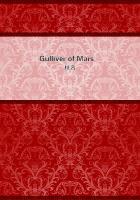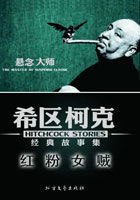Thus the student of Hegel prepared himself for a visit to Russia in order to enlarge his "synthesis" -- and much he needed it! In America all were conservative Christian anarchists; the faith was national, racial, geographic. The true American had never seen such supreme virtue in any of the innumerable shades between social anarchy and social order as to mark it for exclusively human and his own. He never had known a complete union either in Church or State or thought, and had never seen any need for it. The freedom gave him courage to meet any contradiction, and intelligence enough to ignore it. Exactly the opposite condition had marked Russian growth. The Czar's empire was a phase of conservative Christian anarchy more interesting to history than all the complex variety of American newspapers, schools, trusts, sects, frauds, and Congressmen. These were Nature -- pure and anarchic as the conservative Christian anarchist saw Nature -- active, vibrating, mostly unconscious, and quickly reacting on force; but, from the first glimpse one caught from the sleeping-car window, in the early morning, of the Polish Jew at the accidental railway station, in all his weird horror, to the last vision of the Russian peasant, lighting his candle and kissing his ikon before the railway Virgin in the station at St. Petersburg, all was logical, conservative, Christian and anarchic. Russia had nothing in common with any ancient or modern world that history knew; she had been the oldest source of all civilization in Europe, and had kept none for herself; neither Europe nor Asia had ever known such a phase, which seemed to fall into no line of evolution whatever, and was as wonderful to the student of Gothic architecture in the twelfth century, as to the student of the dynamo in the twentieth. Studied in the dry light of conservative Christian anarchy, Russia became luminous like the salt of radium; but with a negative luminosity as though she were a substance whose energies had been sucked out -- an inert residuum -- with movement of pure inertia.
From the car window one seemed to float past undulations of nomad life -- herders deserted by their leaders and herds -- wandering waves stopped in their wanderings -- waiting for their winds or warriors to return and lead them westward; tribes that had camped, like Khirgis, for the season, and had lost the means of motion without acquiring the habit of permanence.
They waited and suffered. As they stood they were out of place, and could never have been normal. Their country acted as a sink of energy like the Caspian Sea, and its surface kept the uniformity of ice and snow. One Russian peasant kissing an ikon on a saint's day, in the Kremlin, served for a hundred million. The student had no need to study Wallace, or re-read Tolstoy or Tourguenieff or Dostoiewski to refresh his memory of the most poignant analysis of human inertia ever put in words; Gorky was more than enough:
Kropotkin answered every purpose.
The Russian people could never have changed -- could they ever be changed?
Could inertia of race, on such a scale, be broken up, or take new form?
Even in America, on an infinitely smaller scale, the question was old and unanswered. All the so-called primitive races, and some nearer survivals, had raised doubts which persisted against the most obstinate convictions of evolution. The Senator himself shook his head, and after surveying Warsaw and Moscow to his content, went on to St. Petersburg to ask questions of Mr. de Witte and Prince Khilkoff. Their conversation added new doubts; for their efforts had been immense, their expenditure enormous, and their results on the people seemed to be uncertain as yet, even to themselves.
Ten or fifteen years of violent stimulus seemed resulting in nothing, for, since 1898, Russia lagged.
The tourist-student, having duly reflected, asked the Senator whether he should allow three generations, or more, to swing the Russian people into the Western movement. The Senator seemed disposed to ask for more.
The student had nothing to say. For him, all opinion founded on fact must be error, because the facts can never be complete, and their relations must be always infinite. Very likely, Russia would instantly become the most brilliant constellation of human progress through all the ordered stages of good; but meanwhile one might give a value as movement of inertia to the mass, and assume a slow acceleration that would, at the end of a generation, leave the gap between east and west relatively the same.
This result reached, the Lodges thought their moral improvement required a visit to Berlin; but forty years of varied emotions had not deadened Adams's memories of Berlin, and he preferred, at any cost, to escape new ones. When the Lodges started for Germany, Adams took steamer for Sweden and landed happily, in a day or two, at Stockholm.
Until the student is fairly sure that his problem is soluble, he gains little by obstinately insisting on solving it. One might doubt whether Mr. de Witte himself, or Prince Khilkoff, or any Grand Duke, or the Emperor, knew much more about it than their neighbors; and Adams was quite sure that, even in America, he should listen with uncertain confidence to the views of any Secretary of the Treasury, or railway president, or President of the United States whom he had ever known, that should concern the America of the next generation. The mere fact that any man should dare to offer them would prove his incompetence to judge. Yet Russia was too vast a force to be treated as an object of unconcern. As inertia, if in no other way, she represented three- fourths of the human race, and her movement might be the true movement of the future, against the hasty and unsure acceleration of America. No one could yet know what would best suit humanity, and the tourist who carried his La Fontaine in mind, caught himself talking as bear or as monkey according to the mirror he held before him. "Am I satisfied?















